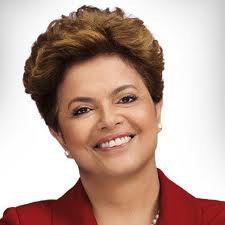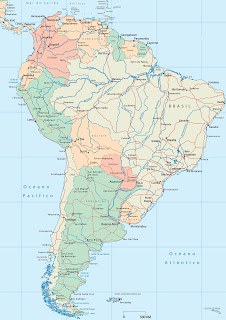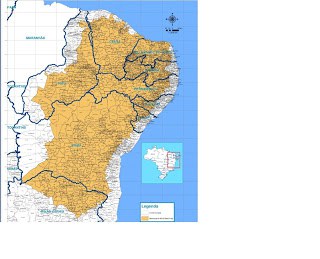Brazil: Structural changes on the way
The Brazilian nation faces a contradictory situation: huge (8.5 million km2), rich of everything, by nature (agricultural land, strategic minerals and others , still huge forests, the biggest reserves of fresh water in the world, tremendous potential of solar, hydroelectric, wind, biofuels and oil energy, nearly two hundred million people, a respectable market and also respectable industrial park, and so on...still has a lot of people in poverty, dire shortages of infrastructure including in critical areas such as transport and sanitation, if we leave aside momentarily vital issues such as public safety, education and health, and simply can not go down the path of economic growth with more than desirable human development.
The diagnosis is not complex: giga taxation was introduced in FHC times and in fact caused by abusive interests paid for years by government bonds, extremely concentrated land structure (which determines the slum swelling on the outskirts of large cities), exchange rate policy that had been dismantling industry installed in the country, interest policy that had determined the public disinvestment for many years and mandates, lack of industrial and technological consistent policy, lack of an agricultural policy that exceeds the care of agro-exporters, scrapping of railways, waterways near absence in a country that has almost 50,000 km of navigable inland waters, to start ... Of course there is much more...
Looking closely at the numbers from the ministry of finance (industriaeagricultura.blogspot.com), we see that what determined the giga taxation and disinvestment were public debt, its charges and interests, strange and deliberately increased by governments themselves, for years. If we look closer, we will see that, in reality, collecting what collects, the country does not absolutely need to sell government bonds, even less with interests above international standards.
President Dilma Rousseff, has however, gradually reduced the benchmark interest rate in the economy, introduced an exchange rate policy consistent with industry and industrialization, with the jobs it generates qualitatively and quantitatively and she studies other measures.
Maybe it requires a change in the economic team to be able to move quickly towards an industrial and technological policy.
The president knows that.
Dilma Rousseff, besides having vast resources intended for new railways and highways, studies in partnership with Venezuela, Colombia, Bolivia, Paraguay, Argentina and Uruguay, the construction of the waterway north-south or Caribbean-River Plate, which requires only modest interventions in Casiquiare and Guaporé rivers, to make connections of the basins of the Orinoco and the Amazon, and of this with the Plate river basin. In the Amazon basin, 20,000 km of navigable waters get immediately integrated.
Just look at the map of South America to realize the importance of this waterway and the "turn" it is. Furthermore, other works, in subsequent years, will allow the connection to other basins of the subcontinent, such as the San Francisco river basin and allow integration for this modal of 9 of the 10 countries that comprise it.
Our president also studies rebuilding the soil, flora, fauna and rainfall in semi-arid areas (see map!), Home to 18 million Brazilians and it occupies nearly one million square kilometers.This reconstruction will take place at very low cost, without engineering works, but supported on the natural succession of species, according to a technique called Agroforestry Regenerative Analog System (ARAS), developed and disseminated in Brazil by swiss citizen Ernst Götsch, who is in full activity.
The rainfall improves, at the extent to which plant and animal species gain size.
Dilma also meditates on ways to reverse tax asphyxia.
Last but certainly not least, she assesses a range of long-term financing for the purchase of small farms, with the own farms as warranty, organized in cooperatives, with all necessary technical assistance, information and knowledge, each cooperative associated with an agro-industry that streamline it. Needless to stress that these measures will warm the land market and expand the supply of food, raw materials, pharmaceuticals and jobs.
Any change of laws may be necessary.
Coming from long experience in public administration and a legendary past, Dilma Rousseff takes its commitment to the story.



